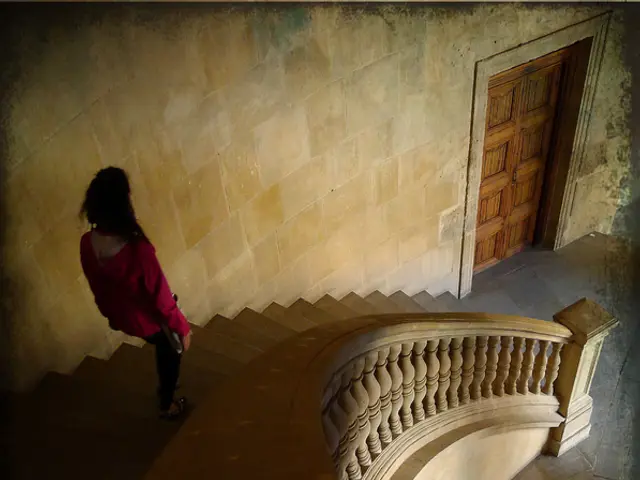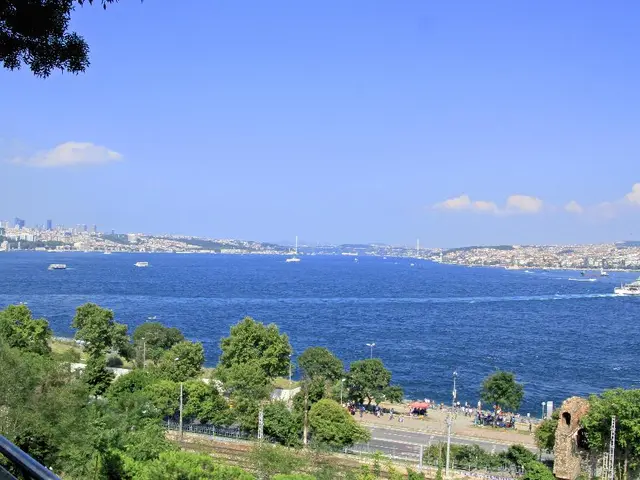Exploring the Foreseen Challenges of Forest Fire Season in Rhineland-Palatinate
- Rhineland-Palatinate experiences the onset of its forest fire season.
Forest fire danger in various regions of Rhineland-Palatinate has been on the rise, largely due to the effects of climate change. The increasing temperatures and decreasing rainfall significantly raise the stakes for the upcoming forest fire season.
Notably, the previous week saw an escalated forest fire risk, particularly in the southern part of Rhineland-Palatinate, alongside the Rhine. Despite this heightened danger, the overall situation has temporarily improved with the arrival of the weekend.
When compared to neighboring state Hesse, no forest fires have been reported in Rhineland-Palatinate during 2025 thus far. For Hesse, however, fires have whisked away 700 square meters of forest floor in Hanau and Jossgrund, situated in the Main-Kinzig district, on a recent Tuesday. The German Weather Service (DWD) predicts rainfall for the immediate weekend, which will likely lower the danger level to minimal in both states.
Climate change plays a significant role in shaping the forest fire season in Rhineland-Palatinate. As the temperatures rise and rainfall decreases, several complications arise.
Warming Trends and Degraded Forest Conditions
- Heightened Fire Risk: The increasing temperatures foster extended and more intense heatwaves. These conditions gradually dry out vegetation, making forests more prone to fires due to enhanced flammability [5][1].
Arid Conditions
- Prolonged Dry Periods: Decreased rainfall causes moisture stress in plants, making it easier for vegetation to catch fire and propagate blazes swiftly. The scarcity of precipitation over extended durations decreases the total water content in forests, making them more susceptible to fires [5].
Drought Stress and Forest Health
- Vulnerability to Pests and Diseases: Drought-stressed trees become more susceptible to pests and diseases, exacerbating the overall risk of forest fires. Areas lacking ample vegetation or experiencing widespread mortality may face a greater risk of wide-spread fires [1].
- Heightened Fire Susceptibility: Studies from nearby regions indicate that forest fire susceptibility escalates in regions experiencing both drought and soaring temperatures. This trend is anticipated to surface in Rhineland-Palatinate, given similar climatic conditions [5].
Local Mitigation and Response Strategies
- Sustainable Forest Management: Adopting sustainable forest management methods aimed at maintaining resilient ecosystems can help combat these impacts. Measures may encompass thinning practices to reduce resource competition and lessen fuel loads [1].
- Drones for Monitoring and Early Detection: Embracing drone technology for observing forest health and identifying early signs of fires is growing in popularity. Utilizing this technology can bolster emergency response efforts and effectiveness in managing forest fires [2].
In conclusion, the forthcoming forest fire season in Rhineland-Palatinate is projected to be more intense due to climate change, given the rising temperatures and reduced rainfall. Developing robust management strategies and responsive tactics are essential to mitigating these challenges.
- Rhineland-Palatinate
- Drought
- Forest Fire Danger
- Forest Fire Management
- Climate Change
- Hesse
- Weekend
- DWD
- Rhine
- Sustainable Forestry Practices
- Drone Technology
- The upcoming forest fire season in Rhineland-Palatinate is likely to be more dangerous due to increased temperatures and decreased rainfall, as observed during the previous week along the Rhine.
- In contrast to Rhineland-Palatinate, forest fires in Hesse have scorched 700 square meters of forest floor in Hanau and Jossgrund, highlighting the need for effective forest fire management.
- To combat the rising forest fire danger, strategies such as sustainable forest management practices, drone technology for monitoring and early detection, and response tactics tailored to the local environment should be urgently considered and implemented in Rhineland-Palatinate.







